Homebuying rules still deter foreigners
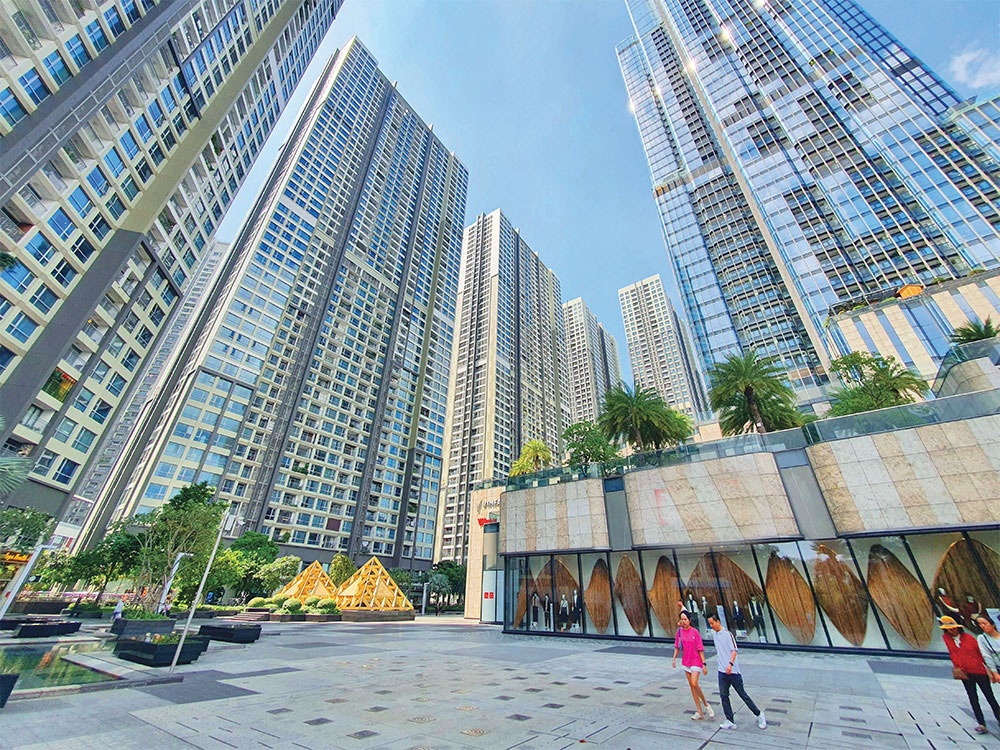 |
| Homebuying rules still deter foreigners, Photo Le Toan |
Nguyen Hoang, a private broker who sells apartments to non-nationals, told VIR that the complex issuance of certificates of housing ownership to foreigners still impacts their rights and interests.
“I have helped some friends from abroad buy homes in big cities in Vietnam. Even though they met all the conditions set by the government, they waited a whole year in order to receive ownership. The reason is that many local governments are still confused about the procedures and so delay the process,” Hoang said.
In addition, foreigners are concerned about ownership terms. According to regulations, home ownership certificates for non-nationals will be valid for 50-70 years depending on each project, and can be renewed.
However, Hoang said, there are no instructions on the renewal procedure or how many times it can be renewed. This also leads to concerns among foreigners when deciding to buy a house in Vietnam.
Hoang also added that the government needs to consider allowing foreigners to buy homes from Vietnamese individuals, and allow them to buy tourist property. “These are high-end products, difficult to liquidate, and suitable for foreigners’ affordability. They meet the desire to buy real estate as a second home, especially tourism and resort products with many amenities,” he said.
Statistics from the Ministry of Construction earlier this year show that since the 2014 Housing Law took effect, more than 3,000 foreigners and organisations have bought houses in Vietnam, mainly apartments in commercial housing projects.
Foreign organisations and individuals buy and own Vietnamese houses, concentrated mainly in large provinces and cities such as Hanoi and Ho Chi Minh City, and industrial hubs such as Bac Ninh, Binh Duong, and Ba Ria-Vung Tau. Most of them come from South Korea, China, Singapore, North America, Australia, or Japan.
However, the Vietnam Association of Realtors estimates that the number of foreigners who have bought houses in Vietnam is still modest. It says the amount of housing that non-nationals have bought since the 2014 Housing Law took effect only accounts for 0.53 per cent of the total housing stock in the country in 2018-2022.
Another problem is that there is no legal framework to address the needs of foreign homeowners when reselling houses and in cases where commercial housing projects have been completed and turned into normal residential areas. The reason is that the Housing Law stipulates that non-Vietnamese can only buy homes in commercial housing projects - which can be understood as not being able to buy houses in regular residential areas.
In addition, there are currently no instructions for foreigners wishing to resell their homes to other non-nationals.
Yoshi Nori Takita, ambassador of the president of the American Real Estate Association for Vietnam, Laos, and Cambodia, said that to attract more foreign investors, the Vietnamese real estate market needs more transparency. “These investors do not have enough information to compare prices and choose products with good prices,” said Takita.
For example, he said, Filipinos promote their real estate products abroad, targeting Filipinos living abroad and other international investors. Everything is carried out in English and administrative procedures are simple, with payment steps similar to those in the US.
“I have not seen these things in Vietnam. I want to emphasise that the country does not have a big enough database for individual investors to find information about the Vietnamese real estate market. We want to see market trends, average prices, appreciation rates, and economic indexes. I believe this information is available, but it is difficult for foreigners to access,” Takita explained.
To help them more easily access Vietnamese real estate, Bui Trang from Cushman & Wakefield said the government should focus on reviewing, completing, and removing obstacles in legal regulations in accordance with the market and international practices.
“This would help to create an attractive, competitive, and open business investment environment, along with promptly removing policy complexities to create stronger conditions for investors,” Trang said.
Together with those suggestions are flexibly managing monetary policy, meeting the needs of credit capital flows for market development, and improving transportation infrastructure, she added.
According to a survey by the Vietnam Institute of Real Estate Research in September with 500 large-scale foreign investors, 10.5 per cent of them evaluated that real estate prices in Vietnam were at very attractive levels, while 47.4 per cent rated them as very attractive but would be even better with legal advances.
The survey also presented that mid-range and high-end apartments and tourism and resort real estate are the most interested area for foreign buyers.
| Non-national buyers that can buy and own properties in Vietnam are legal entities, such as foreign investment funds and banks, branches, representative offices of overseas companies established in Vietnam, and foreigners or overseas nationals with an appropriate entry visa. There are several ways foreigners can own property in Vietnam. They can either invest in housing construction projects or buy, rent, or inherit houses, including apartments and landed properties like villas or town houses. The only exceptions are if the properties are on land used for national defence and security. To increase transparency, streamline administrative procedures, and regulate the resale process, there are laws regulating how much property foreigners may own. While there is no limit to how many properties an individual can buy, foreigners can only own up to 30 per cent of the units within an apartment complex or 250 landed properties in an administrative ward. |
| Anh Le, Managing partner, DN Legal
The allure of Vietnam properties for foreigners has been steadily growing since the enactment of the Law on Housing 2014, which paved the way for foreign ownership of apartments and houses. This surge of interest extends not only to residential properties but also to hospitality assets like condotels and resort villas. In Vietnam, the certificate of ownership over assets attached to land stands as the definitive proof of house ownership. However, legal constraints mean that foreigners can only purchase apartments or houses within commercial housing projects, with a limited number of units in each project outside the national security and defence zones. In cases where the rights certificates become elusive, long-term lease or special preference share structures come into play to ensure the ownership is contractually vested to the foreign homebuyer. With all the legal tools and structures available, foreign investment continues to pour into Vietnam’s housing sector. As Vietnam’s legal framework evolves, the potential for foreigners to acquire property in Vietnam remains promising, making it an opportune time for foreigners to explore this dynamic and ever-changing market. The government should strongly consider raising the current 30 per cent threshold for foreign property ownership in a single project. This roadmap could involve incrementally increasing the limit, such as raising it to 40 per cent within the next two years and 50 per cent within the subsequent four years, subject to regular reviews and reports from local authorities, ensuring that the expansion aligns with the evolving needs and dynamics of the real estate market. An additional concern pertains to the determination of projects falling outside national security and defence zones, making them accessible for foreigners to purchase houses. Currently, the provincial Department of Construction must publish the list of such eligible projects on its website. However, this process varies among different localities, making it challenging for prospective buyers to access this information. To address this issue, a regulatory change should be implemented such that when a project applies for a sale permit, the authorities should concurrently determine its eligibility for foreigners’ purchase. This adjustment would provide clarity to potential foreign buyers, ensuring they have a straightforward way to identify projects open to foreigner’s purchase. Eric Park, Chairman, Korea Real Estate Services Association
Vietnamese real estate is always among South Korea’s top investment priority markets. Regarding the Vietnamese market, there are many Koreans who own apartments in big cities. There are many other Koreans who want to invest here, but are still concerned about the laws for foreign investors. Other factors that can influence their investment decisions may include interest rates, cash flow, and profitability. In addition, investors may also be interested in the project location, type, and price. Currently, the flow of South Koreans living and working in Vietnam is increasing every year, so does the need for housing, workspace and entertainment. For example, in office space, the hybrid working model (both online and offline) is the main trend in the rental market when tenants from the technology and biotechnology industry is increasing. Korean organisations and investors are allocating their assets abroad and real estate funds are increasing, and the above information may be factors affecting their incoming investment decisions in Vietnam. The Vietnamese government should place more focus on developing infrastructure, transportation, and urban planning to support the development of the real estate market. Meanwhile, real estate developers should focus on bringing products that meet the needs and preferences of their target customers, for example, high-end apartment projects and complexes combine residential, trading centre, and entertainment facilities. |
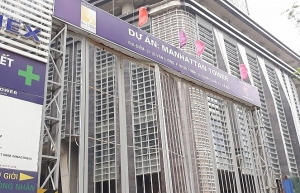 | Homebuyers cry foul as developer goes into hiding A Ho Chi Minh City-based real estate developer has been accused of acting irresponsibly towards customers, with questions of a scam being raised. |
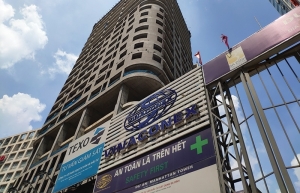 | Real estate dented by surging delays Today’s real estate and construction scene is heavy with projects running behind schedule and works of poor quality causing exasperating problems for homebuyers and authorities alike. Kim Huong reports. |
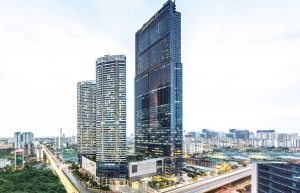 | Housing list may not match demand Hanoi’s recently-released list of housing ventures for foreign homebuyers may draw in less interest than expected as reputable developers are not involved, and complex legal barriers tower on the horizon. Kim Thy reports. |
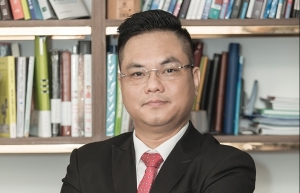 | Protecting homebuyers amid venture upheaval Real estate transactions always contain many risks, while buyers and investors are often very passive before complicated situations. |
What the stars mean:
★ Poor ★ ★ Promising ★★★ Good ★★★★ Very good ★★★★★ Exceptional
Related Contents
Latest News
More News
- Saigon Centre gains LEED platinum and gold certifications (February 12, 2026 | 16:37)
- Construction firms poised for growth on public investment and capital market support (February 11, 2026 | 11:38)
- Mitsubishi acquires Thuan An 1 residential development from PDR (February 09, 2026 | 08:00)
- Frasers Property and GELEX Infrastructure propose new joint venture (February 07, 2026 | 15:00)
- Sun Group led consortium selected as investor for new urban area (February 06, 2026 | 15:20)
- Vietnam breaks into Top 10 countries and regions for LEED outside the US (February 05, 2026 | 17:56)
- Fairmont opens first Vietnam property in Hanoi (February 04, 2026 | 16:09)
- Real estate investment trusts pivotal for long-term success (February 02, 2026 | 11:09)
- Dong Nai experiences shifting expectations and new industrial cycle (January 28, 2026 | 09:00)
- An Phat 5 Industrial Park targets ESG-driven investors in Hai Phong (January 26, 2026 | 08:30)

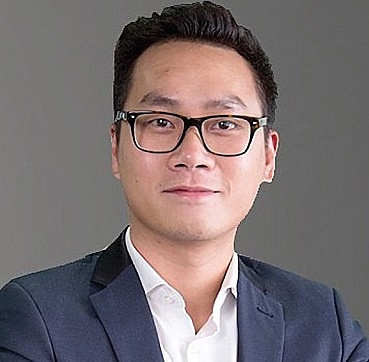
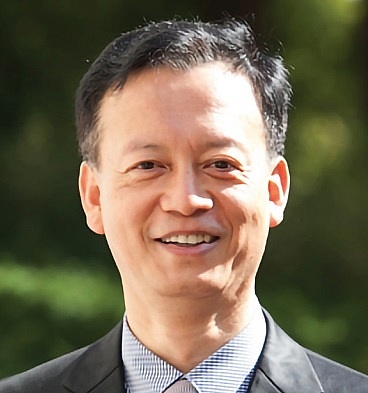
 Tag:
Tag:




















 Mobile Version
Mobile Version